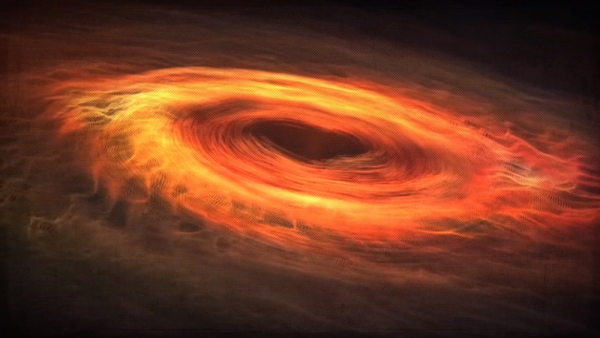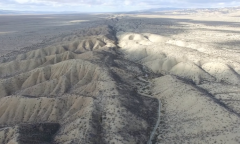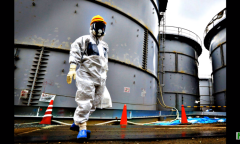By KM Diaz, | May 31, 2017

Scientists have found that supermassive black holes are more likely to ruin their surroundings than previously believed. (YouTube)
Scientists have found that supermassive black holes are more likely to ruin their surroundings than previously believed. A study published this month shows how black holes and quasars could destroy the atmosphere of planets around them.
Quasars are bright, star-like objects believed to appear from the far away in space but often produce powerful radio waves, and are the cores of active galaxies made up of supermassive black holes.
Like Us on Facebook
About 10 percent of all the planets could lose their atmosphere similar to Earth, and 50 percent equivalent of Mars' atmosphere because of these quasars, the study revealed. The atmosphere disappears due to the energy transfer of quasars.
Meanwhile, supermassive black holes are characterized by light that continues to grow brighter because of gas. When light has been gained, the stars in the area will be outshined. Then, the light illuminates the planet's atmosphere to finally transfer energy to the particles. If that happens, particles will have enough energy to leave the atmosphere as they break free of the gravitational pull.
The level of atmospheric loss of a planet depends on how the galaxy and planet are. More mass means the gravitational pull is stronger and particles will need more energy to break free, and chances are lower for large atmospheric loss if the mass is higher.
Abraham Loeb and John C. Forbes, researchers of the study, wrote that mass' loss probability distribution function can now be estimated because of this relationship.
That means that the planet could be estimated to be habitable, or once was, and could likely assume that black holes have something to do with the atmospheric state. It could also explain why other planets like Mars appear to have had a life at some point.
-
Use of Coronavirus Pandemic Drones Raises Privacy Concerns: Drones Spread Fear, Local Officials Say

-
Coronavirus Hampers The Delivery Of Lockheed Martin F-35 Stealth Fighters For 2020

-
Instagram Speeds Up Plans to Add Account Memorialization Feature Due to COVID-19 Deaths

-
NASA: Perseverance Plans to Bring 'Mars Rock' to Earth in 2031

-
600 Dead And 3,000 In The Hospital as Iranians Believed Drinking High-Concentrations of Alcohol Can Cure The Coronavirus

-
600 Dead And 3,000 In The Hospital as Iranians Believed Drinking High-Concentrations of Alcohol Can Cure The Coronavirus

-
COVID-19: Doctors, Nurses Use Virtual Reality to Learn New Skills in Treating Coronavirus Patients









